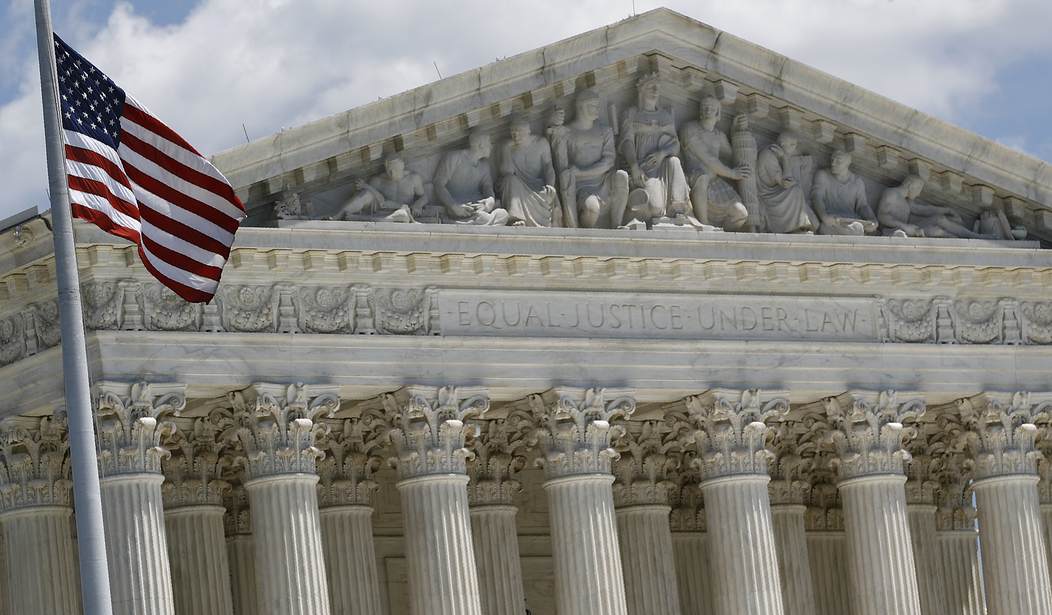This is one of those stories that is a bit hard to parse for a number of reasons. For one, the people raising the alarm about it are abortion rights proponents who have a habit of framing every challenge as an existential threat. Another reason this is hard to follow is that it involves a cleverly designed law intended to limit the ability of abortion rights groups to block it in court.
Here’s how things stand right now. Texas Senate Bill 8 is set to go into effect tomorrow, September 1. The law would make it illegal to seek an abortion at around 6 weeks. If you follow this issue you’re probably aware that about a dozen other states have passed similar “heartbeat bills” in the past and what usually happens to them is that abortion groups sue and a judge prevents the laws from ever taking effect.
But Senate Bill 8 was written specifically to avoid being challenged and blocked in the usual way. Instead of making enforcement of the law dependent on the state government, SB8 allows anyone in the country to sue abortion providers (or those working with them) in Texas courts. That makes opposing the law tricky because, in effect, there is no one to sue to block enforcement of the law. Indeed, that was the whole idea.
John Seago, legislative director for Texas Right to Life, said the law was written to make sure courts could not step in preemptively. He said the goal is to block “the typical path that the abortion industry has been able to get away with,” which is getting a court to block a law before it goes into effect.
“The design was to make sure the law was actually enforced,” Seago said. “That’s part of the motivation.”
Despite this, pro-abortion groups sued and were attempting to convince a district court in Austin to block the law before it took effect. There was a hearing scheduled for Monday of this week. But last Friday the 5th Circuit intervened and canceled that hearing. When the pro-abortion groups filed emergency motions in response, the 5th Circuit told them to pound sand.
Late on Saturday, provider groups, including Planned Parenthood Center for Choice and Whole Woman’s Health Alliance, filed emergency motions with the 5th Circuit, essentially asking it to send the case back to district court or for the appellate court itself to issue a stay that would temporarily block the law’s enforcement.
The 5th Circuit denied the emergency motions Sunday afternoon.
“If this law is not blocked by September 1, abortion access in Texas will come to an abrupt stop,” Marc Hearron, senior counsel at the Center for Reproductive Rights, which represents providers, said in a statement.
And that leaves the abortion groups with just one option: Appeal directly to the Supreme Court for help.
The Center for Reproductive Rights, Planned Parenthood, the Lawyering Project, the ACLU, the ACLU of Texas and Morrison & Foerster LLP filed the emergency request with the court on Monday. The law, Senate Bill 8, is slated to go into effect on Wednesday.
Amy Hagstrom Miller, the president, CEO and founder of Whole Woman’s Health, said there is “no question that the six-week ban on abortion is unconstitutional.” She said the law should not be allowed to go into effect.
“We are asking the Supreme Court to step in and bring relief to the people of Texas,” Hagstrom Miller told KUT.
And at this point you can probably see why the panic is setting in on the left. Because if no one stops the law from taking effect tomorrow, abortion providers in Texas will probably be forced to shut down or at least significantly curtail their activities. And at this moment the only court than can prevent that from happening is the one that includes Amy Coney Barrett and Brett Kavanaugh.
As I pointed out last week, there’s some speculation that maybe Kavanaugh could be persuaded to save Roe and take up the role of the new swing vote on the Supreme Court (with Chief Justice Roberts siding with the left). Maybe that will happen but it’s quite a position to be in after having sent an army of pro-abortion activists in red robes to oppose Kavanuagh’s confirmation just a few years ago.
In the meantime, Slate suggests the Texas law may give SCOTUS an easy way to effectively gut Roe without having to do anything.
The conventional wisdom around abortion and the Roberts court was always that the chief justice didn’t want to be overruled from below by overeager abortion radicals in the circuit courts; that would be unseemly and would usurp the court’s prerogatives. But the twisted-staircase genius of SB 8 is that it’s Texas itself overruling Roe from below, and making it nearly impossible for any federal court to intervene. Untethered from any duty to rescue the right to choose, the Supreme Court may be more than happy to just stand back and watch it expire. Those of us who’ve been contending for years that the Roberts court would never explicitly overturn Roe were quite possibly not cynical enough. We didn’t account for the fact that they would be delighted to leave it to Texas, and to slouch away without speaking a word. We’ll find out in a matter of days.
To be clear, doing nothing would only impact Texas but I guess it would suggest an approach that other states could emulate to effectively end Roe in their states as well.








Join the conversation as a VIP Member